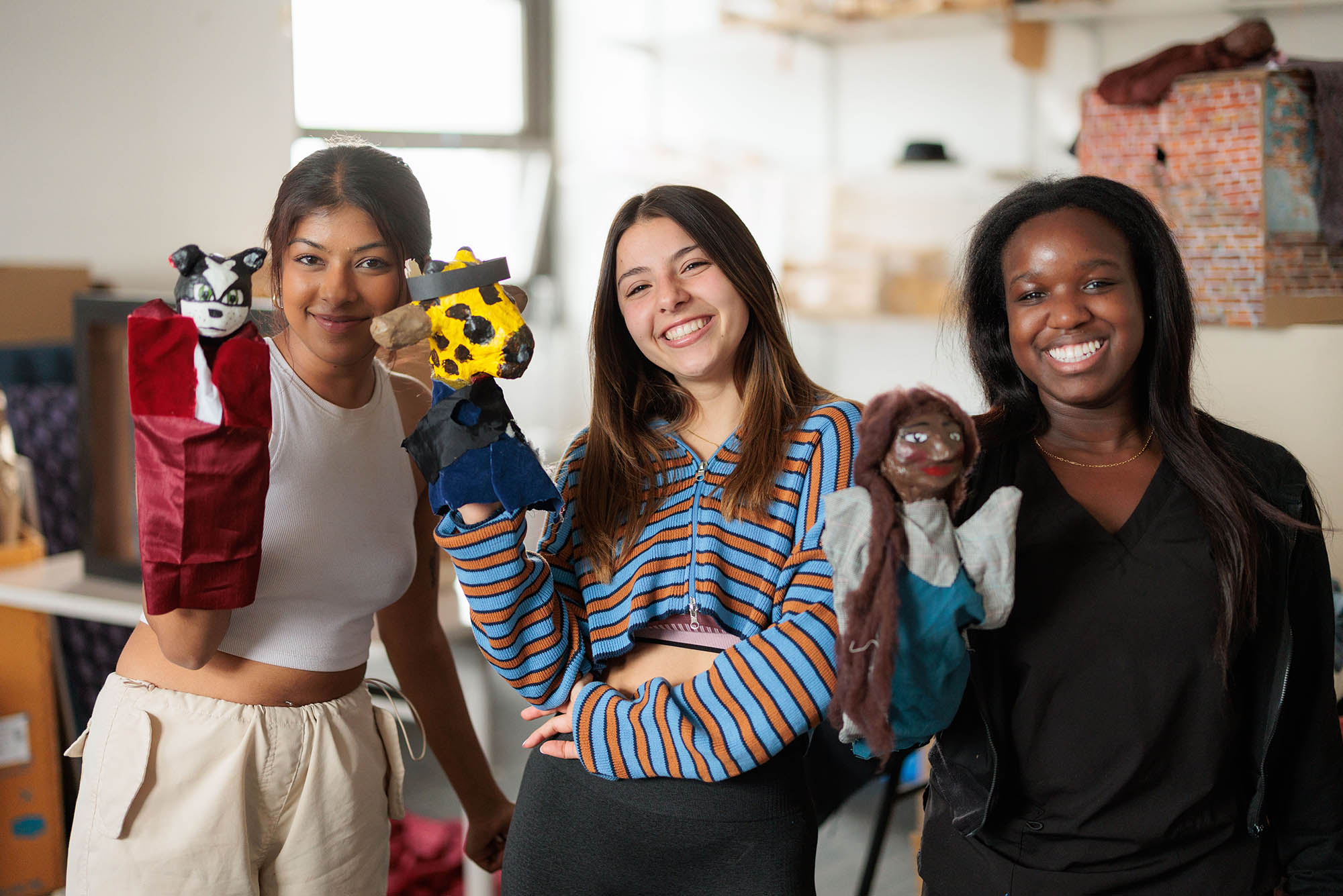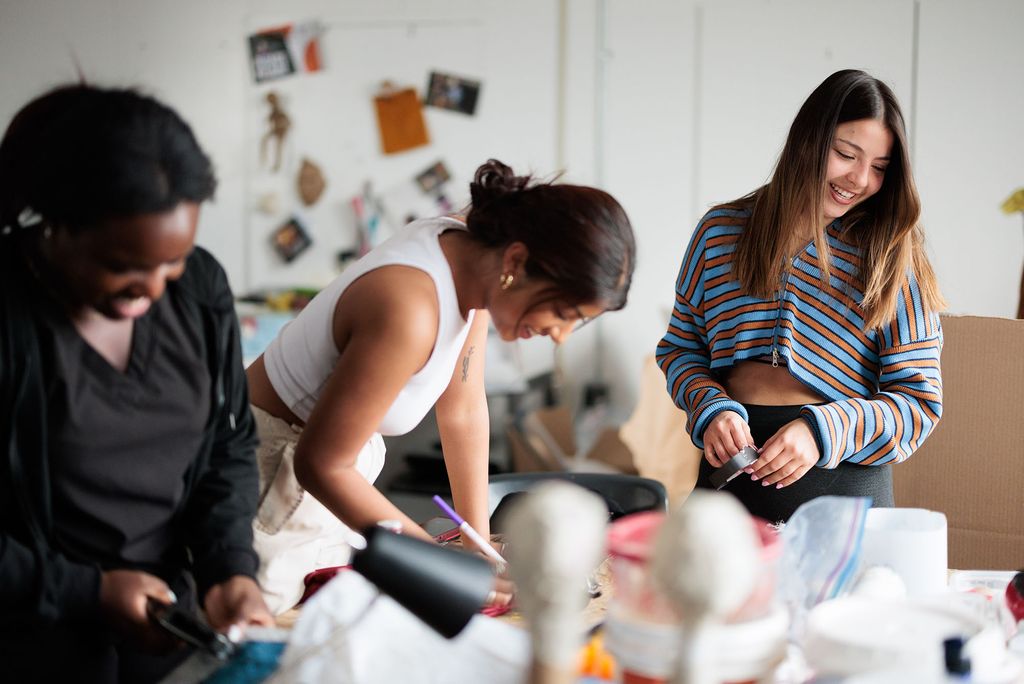The Brink feature: Communicating Science and Research—through Puppets

The Brink feature: Communicating Science and Research—through Puppets
Cross-College Challenge class uses play and creativity to make science more accessible and improve researchers’ communication skills
Nia Hoq (CAS’23) (from left), Alejandra Alfaro-Carcoba (CAS’23), and Alexa Adesokan (CAS’23) with the puppets they created for a video showcasing the research of the BU Motor Development Lab.
This article was originally published in The Brink on May 16, 2023. By Corrine Steinbrenner (COM’06) | Photos by Jacob Chang-Rascle (COM’22)
Excerpt
Stephen Caron, a Boston University biology doctoral student, is used to communicating his research on environmental change in New England forests through weighty journal articles and serious presentations aimed at other scientists, those who want to know the “technical, nitty-gritty details” of his experiments. He rarely, though, gets to discuss his work with people outside his field. And definitely not through…puppets?
So, when asked if he would explain his research to a team of undergraduates who would then make a puppet show based on it, Caron (CAS’16, GRS’24) immediately said yes. Collaborating with the undergrads seemed like a valuable opportunity to practice speaking to a nontechnical audience—and it sounded fun.
“If someone comes to you and wants to make your science into puppets,” he says, “why not?”
The undergrads who later toured BU’s Templer Lab, where Caron is based, were enrolled in Thinking through Puppets and Performing Objects, one of several classes offered as part of BU’s Cross-College Challenge (XCC). The XCC courses, which are cotaught by professors from different disciplines, bring together juniors and seniors from a mix of majors to engage in team projects that address real-world problems—in this case, the problem of making science accessible to lay audiences.
For their final project, the undergrads in the class were paired with graduate students in various BU research labs. The undergrad teams then created puppet shows that conveyed some aspect of their assigned lab’s research, covering topics as diverse as lung and breast cancer, mechanical design, walking function, and forest ecology.
One of the class’ coteachers, Suzanne Sarfaty, a Chobanian & Avedisian School of Medicine associate professor, hopes the researchers who participate in Thinking through Puppets take away more than just a video file.

“Most of our researchers are also teachers,” says Sarfaty (CAS’84, CAMED’88), who has a deep-rooted interest in helping doctors and scientists be more effective communicators. “I think teachers can become better teachers when they open their minds to alternative methods of connecting. Not everyone is going to take on puppetry, but I think it can enhance teaching skills to realize that messages can be communicated in different ways.”
Her coteacher, Felice Amato, a College of Fine Arts assistant professor of art and art education, is a former K–12 visual arts specialist who has long been interested in the pedagogy of play and the role of playfulness in the research process. She developed the class while finishing an arts-led dissertation and sees research labs as creative spaces that generate new insights and knowledge—spaces that can benefit from playful disruptions to their routines.
I often feel this busy joy in the classroom when everybody’s making things. The more we can continue to tap into that throughout our lives, the healthier and happier we’ll be.
During class sessions, Sarfaty leads students through skill-building activities in teamwork and communication, and Amato teaches the art and history of puppetry. Students spend the remainder of their class time cutting, stitching, gluing, drawing, and painting puppets and sets.
“I often feel this busy joy in the classroom when everybody’s making things,” Amato says. “The more we can continue to tap into that throughout our lives, the healthier and happier we’ll be.”